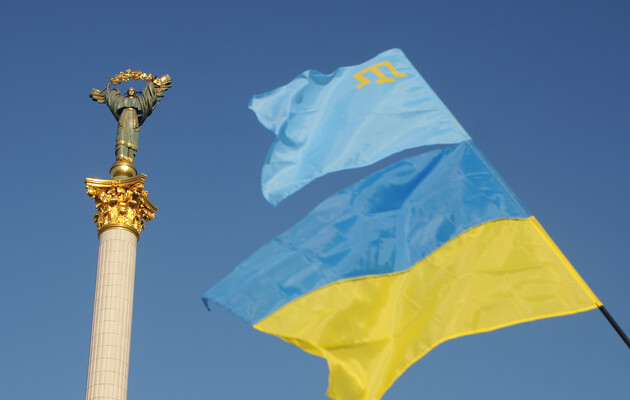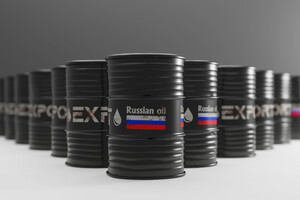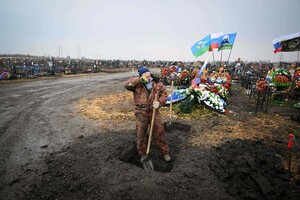Liquidation of Crimea’s autonomy: a provocation or a timely conversation?

The statement of adviser to the head of the presidential office Mykhailo Podolyak about the deprivation of the status of autonomy of the administrative entity in Crimea after its liberation can be viewed as a political provocation, a position of the authorities, or an invitation to discuss this complex issue.
The main political parties were predictably silent, having, apparently, the data of sociological studies. Mejlis Chairman Refat Chubarov stated that at the last stage of the existence of the USSR in February 1991, autonomy was imposed on Ukraine in order to maintain influence over it, based on the ethnic composition of the inhabitants of the peninsula, among whom Russians were the overwhelming majority. He noted that since 2014, the authorities of Ukraine have been paying a lot of attention to satisfying the interests of the Crimean Tatars, which was not the case with the authorities of the Autonomous Republic of Crimea. That is, autonomy, of course, is bad, but... let it remain.
Meanwhile, social networks have taken up the discussion of the topic rather briskly, sometimes in a not very tolerant way regarding the ethnic issue. The range of opinions boils down to the following ideas: turn the Autonomous Republic of Crimea into an ordinary region, turn the autonomy into a national and cultural one. And, finally, there is the traditionally Ukrainian motif – it is not the right time for this. There are almost no votes in favor of maintaining its current status. Although it is meanwhile noted that this issue is related to amendments to the Constitution, which is quite difficult not only in view of the prohibition of amending the Basic Law during war, but also for purely political reasons.
The issue is actually very subtle, and it is the right time for this. If we manage to return Crimea, then the administrative package from the state must be ready and written out perfectly.
What types of autonomy exist?
The concept of autonomy itself needs to be clearly defined in order to avoid political manipulation. It can be a set of state measures to support and preserve the culture of ethnic groups that are on the verge of extinction or assimilation. The state guarantees such cultural and national autonomy for the Crimean Tatars, Krymchaks and Karaites in the Law On Indigenous Peoples adopted in 2021. The law provides for the activities of self-governing bodies of such peoples, which are involved in the development of state decisions.
Another thing is administrative and territorial autonomy. This is the granting of local authorities the right to legislatively regulate certain issues that are specific to such territories in connection with their geographical, ethnic, or historical peculiarities. National and territorial autonomy is usually a precursor to the creation of a nation-state. However, the implementation of such a national idea in a democratic way is almost impossible without the corresponding ethnic group having an absolute majority of the population. As history shows, such independence is mostly not achieved peacefully.
An authoritarian state is a completely different thing. Stalin was very fond of inciting peoples against each other, creating national and territorial autonomies, and sometimes where the corresponding ethnic group constituted a minority. Thus, in the 1930s, there were several Russian national districts on the territory of Ukraine, mostly in the Sumy region, usually in places where Old Believers lived. By the way, this circumstance indicates that the rest of the territory of Ukraine was ethnically and linguistically Ukrainian, including the eastern and southern regions. Moreover, with the aim of expansionism in the eastern territories adjacent to the Dnister River, an administrative and territorial unit of the regional level was created under the provocative name of the Moldavian Autonomous Republic, the majority of whose population at that time was Ukrainians. The creation of a Jewish autonomous region in the Far East as an alternative to the formation of a full-fledged Jewish state can be considered utter cynicism.
Risks of Crimean autonomy
Granting Crimean Region the status of an Autonomous Republic within Ukraine played its destructive role first in the preservation of the Soviet world, and later — in the early 2000s — in strengthening the “Russian world.” Attempts by patriotic forces to defend the interests of the state ran into the same rhetoric – we have autonomy, we are special. On the one hand, there is Ukraine, and on the other hand, there is Crimea. There was practically no Ukrainian government in Crimea, administrative structures were subordinated to the regional government. Even law enforcement agencies, despite the formal vertical, actually functioned according to the medieval principle “my vassal’s vassal is not my vassal.” This problem, of course, existed throughout the territory of Ukraine, but in Crimea it overlapped with an overt Russian factor, which played its role in 2014, when even Security Service employees took the side of the enemy.
The status of autonomy naturally has its normative reflection in the Constitution of Ukraine. According to it, the Verkhovna Rada of the Autonomous Republic of Crimea is entrusted with the regulation of issues in nine sectors of economic and social life. None of them belong to those that objectively have a feature that would require a separate regulation, different from the all-Ukrainian one. Part of the practical tasks entrusted to the authorities of the Autonomous Republic of Crimea is to ensure the functioning and development of state and national languages and cultures in the Autonomous Republic of Crimea, the protection and use of historical monuments, and participation in the development and implementation of state programs for the return of deported peoples.
The practical implementation of these tasks by the regional representative authority certainly had a clearly defined pro-Russian vector. And it was difficult to expect anything else, given the ethnic composition of the voters, the absolute majority of whom are Russians. Economically, the status of autonomy did not demonstrate its advantages in any way — the budget of the Autonomous Republic of Crimea was always subsidized, although the expenses for maintaining the apparatus of the Council of Ministers of the Autonomous Republic of Crimea were twice as high as the expenses for the maintenance of regional administrations similar in terms of functions, even in non-subsidized regions such as Dnipropetrovsk and Donetsk.
Regarding the changes in the ethnic composition of the inhabitants of the peninsula, it should be noted that it was never monoethnic. Russians, in particular, began to dominate Crimea only at the beginning of the 20th century as a result of resettlement after the abolition of serfdom and made up more than half of the Crimean population, in particular at the time of the deportation of the Tatars.
Be that as it may, Tatars in Crimea today make up a fifth of the population. It is obvious that they will not be able to get a majority in the representative body of the region in the next half century, even despite a good birth rate. Forced eviction of Russians is possible only for those who moved to the peninsula after 2014. The rest are citizens of Ukraine who currently live under occupation, despite their attitude towards the state of Ukraine. The definition of any privileges in the Constitution in section 10 contradicts the principle of direct and equal suffrage and Article 24, which enshrines that “there shall be no privileges or restrictions based on race, colour of skin, political, religious and other beliefs, sex, ethnic and social origin, property status, place of residence, linguistic or other characteristics.”
The post-occupation factor and the Law On Indigenous Peoples of Ukraine
It is obvious that even after the restoration of control over Crimea, the regional authority, regardless of its status, will be elected by voters whose ethnic composition will mostly be represented by Russians. However, this does not mean that they will definitely have a pro-Russian orientation. First of all, because the elections in the territory poisoned by the idea of the “Russian world” will be held after a certain period of detoxification. There is hope that the Ukrainian authorities will harshly remove from the race any and all political forces that, at least indirectly, will appeal to the sentiments associated with the aggressor country. And this is not only about mentioning the phenomenon of “good Russians.” For reasons of national security, even references to Russian cultural products must be stopped.
In addition, the experience of resisting Russian aggression shows that political rather than ethnic Ukrainianism is being intensively formed in Ukraine. Russia will not be able to systematically resist this, since the ideological foundations of pan-Russianism are broken by simple questions, namely where is the territory of the Russians themselves, which is separated from the territories of other peoples who inhabit the Russian Federation? The formation of the Russian diaspora as the basis for the sustainable preservation of Russian culture contradicts the spirit of expansionism that has been nurtured in Russian society for centuries. Therefore, there are reasons to believe that even ethnic Russians five years after the victory will accept the inevitable and will not be active opponents of Ukraine.
The Law On Indigenous Peoples of Ukraine will ensure the interests of the indigenous peoples much better than the preservation of administrative and territorial autonomy in Crimea. First, because its action is extraterritorial, that is, advantages in cultural and educational development will be given to representatives of indigenous peoples not only in Crimea itself, but also in places where they live compactly, for example in the Kherson region. Secondly, guarantees of observance of such rights are provided not by a politically oriented regional authority, but directly by a state authority of Ukraine, which must also adhere to international agreements in the area of protection of the rights of small nations. Again, the implementation of the principle of national autonomy in its administrative and territorial form in practice should include, in particular, the obligation to study at least four languages in all schools of Crimea: Ukrainian as the state language and the languages of the indigenous peoples — Crimean Tatar, Crimean, and Karaim. Without a doubt, this will be ambiguously perceived even among the residents of Crimea who are sympathetic to these peoples.
Why is it timely?
The issue of liquidation of the Autonomous Republic of Crimea as an administrative and territorial unit should be raised now, before the end of the war, even before the deoccupation of the peninsula. First of all, because the preparation of constitutional changes will require serious elaboration. After all, it is not only about the removal of Section 10 of the Basic Law. It is necessary to make amendments to Article 133, which concerns the administrative-territorial system of Ukraine, to remove the list of regions incorporated in the Constitution as a counterweight to the special status of public authority in Crimea.
It is obvious that it will be necessary to remove mentions of the city of Sevastopol, which does not have signs that determine its special status. It is also necessary to consider the results of the reform of the administrative and territorial system, introducing the concept of community as an administrative and territorial unit into the Constitution. Again, it is necessary to consider the consequences of decentralization of power by making changes to Chapter 11 “Local Self-Government,” as well as the organization of state power in the territory through changes, in particular in Articles 118 and 119.
Secondly, the delay in making a political decision regarding the elimination of autonomy is already having a negative impact on the formation of the configuration of public authority in Crimea. Districts are formed on the basis of politically motivated considerations, and not requirements to ensure the effectiveness of territorial executive bodies. By the way, the ethnic factor dominated not only during the decision-making process regarding Crimea: Bolhrad and Berehiv districts, which are functionally incompetent, were also created to benefit third parties.
The situation with the formation of the basic basis of local self-government in Crimea is even worse. If the communities in the occupied territories of Luhansk and Donetsk regions were created clearly in accordance with the methodology that has shown its effectiveness in other territories of Ukraine, the political community is delaying making a decision regarding Crimea, not having a clear answer to the question regarding the status of autonomy. Considering the ethnic factor as dominant will have negative consequences for the creation of capable communities, which in turn will show the ineffectiveness of state policy in Crimea.
And this despite the fact that the application of the Law On Indigenous Peoples mainly concerns self-government bodies at the community level. Moreover, reforming the basic level allows the most complete consideration of the interests of indigenous peoples, first of all, in Starosty districts (parts of the territory of a community in Ukraine, on which one or more settlements (villages, towns, cities) are located).
Again, the bright fact of bringing the status of Crimea to that which exists in other regions of Ukraine will give a clear signal to the international community. Ukraine will no longer allow anyone to play federation and separatism – neither eastern enemies, nor southern neutrals, or western allies.
Finally, the Ministry of Reintegration and other state bodies have already begun to form personnel reserves of educators, law enforcement officers, and civil servants who will be the leaders of the Ukrainian idea. And such patriotic enthusiasts need assurance that the power in Crimea, both state and self-governing, will really be Ukrainian, and this will become inevitable only in case of cutting the umbilical cord that connects the peninsula with Russia in the form of autonomy. Our soldiers who will liberate Crimea must be sure: the state will complete their task of expelling the Russian devil not only from the territory, but also from the spiritual world of Ukraine.
The liquidation of the Crimean autonomy, of course, will not solve all the issues of Crimea’s integration into the Ukrainian space, but at least it will open a perspective.
Please select it with the mouse and press Ctrl+Enter or Submit a bug















 Login with Google
Login with Google